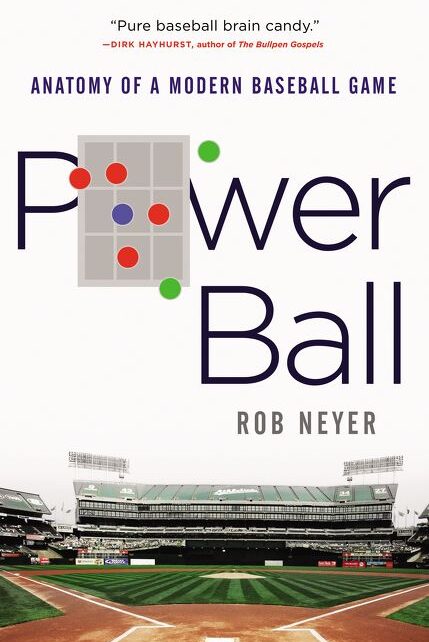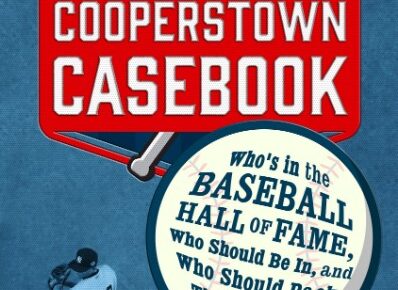Power Ball was a Christmas pick up for me, one of a handful of books that I bought with bonus Amazon money from work. I picked it up on the strength of lots of positive reviews, and yet it sat on my bookshelf for many months and I found myself constantly passing it over to read something else. I know why I did that, and I believe my reasoning to be sound. What I thought would annoy me about the book did annoy me, but it also managed to go to places I wasn’t expecting. That made Rob Neyer’s latest book a treat, a not completely fulfilling treat, but a treat nonetheless.
The reason I let Power Ball sit for so long is simple, I’m not a big fan of Neyer’s work. There’s something about his writing that comes across as very elitist and entitled. This has always kept me at arm’s length from enjoying him the same as I do a Sam Miller, Hannah Keyser, or Jonah Keri. They are smart folk who bring me into their world and make me feel like I belong, whereas Neyer makes me feel like an outsider in a world he doesn’t think should count me as a member. Going into Power Ball that hung over the book and I would be dishonest if I didn’t think that affected my overall thoughts on Neyer’s prose.
There are parts of Power Ball that are hard to stomach, such as Neyer’s anti-Union tendencies or his laments about the “millionaire” baseball players. In both cases, it’s an issue of framing, where Neyer feels that if he tears down ownership then he must also tear down the players. Except, well, he doesn’t have to and it comes across as an exercise where Neyer’s politics tell on him. I also found myself rolling my eyes at the construct choice of referring to Major League Baseball as Baseball throughout the book. I get what Neyer was going for with that turn of phrase, but as someone who pushes hard for acceptance of the idea that MLB is not all there is to baseball it rubbed me the wrong way.
However, even with those issues, I found myself enjoying the majority of Power Ball. The way in which Neyer broaches the topics he wants to discuss is very tangential and conversational. It helped to bridge some of the outsider feelings I typically get from him. He was having a series of conversations that were often unwieldy and took him wherever his head was in that moment and I felt like I could follow along with approaching the subject matter in such a way.
More than anything I appreciated that Neyer looked at a wide variety of topics and presented them in a manner that led to me thinking more deeply about those topics. I don’t agree for one second with Neyer’s assertion that Exit Velocity and Launch Angle are essentially useless statistics that can only connect with the nerd set of sabermetrics. However, the way Neyer presented that idea made me think deeply about EV and LA and what they mean to me, should mean to the common baseball fan, and how they can be better implemented so that people see the value they have. I found myself reading through large chunks of Power Ball at a time simply because it was making me think about topics in ways that were conducive to better exploring what those topics meant to me. That is the sign of a well-written book, and a damn well-written baseball book.
I spent a few days thinking about Power Ball before I could suss out what my true feelings on the book were. I needed those few days because Power Ball left me with a fair amount to think about, both good and bad. I even took notes as I was reading Power Ball, and that is what ultimately led to me coming down on it as a deeply flawed read that is still well worth a recommendation. Power Ball made me angry at times, but it also made me think, and that is really what I look for in a baseball book. Power Ball aces that litmus test, and I think any baseball fan who wants to turn their brain on and think about the game as we’ve come to know it, or used to know it, will enjoy Power Ball for the same reasons I did.
Lead photo courtesy of HarperCollins




